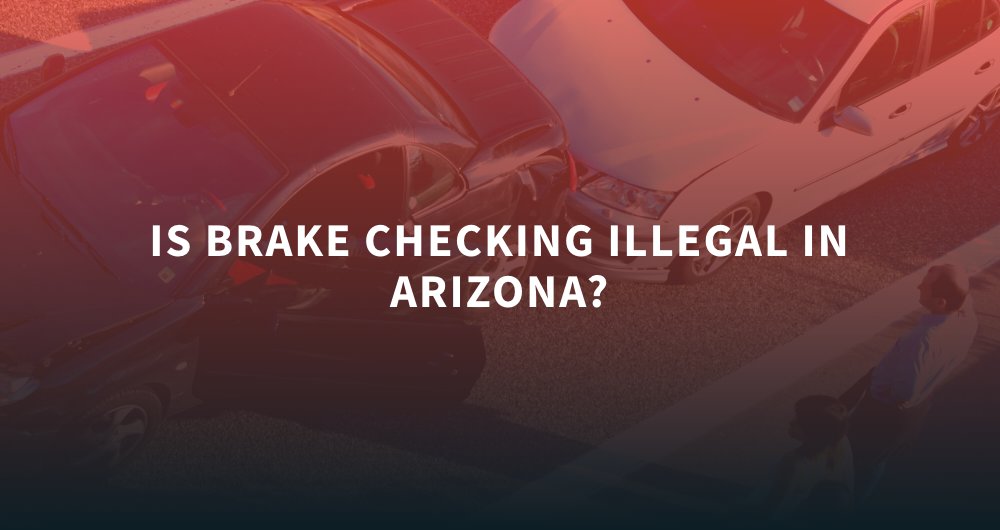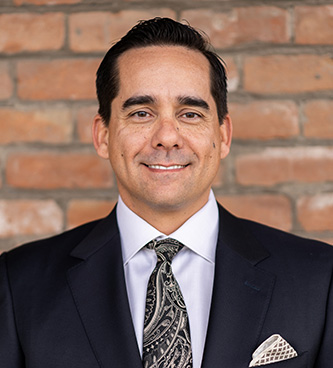
Generally speaking, in “rear-end” collisions, the driver that rear-ended the other is usually the at-fault party for the crash. From a legal standpoint, the rear driver is considered liable because he or she is “following too closely” or “at a speed too great for conditions.” Nonetheless, there are circumstances where the front vehicle’s driver might be at least partially responsible for the crash.
Brake checking, also referred to as brake testing, occurs when one driver deliberately taps or slams on their brakes to let the rear driver know that they are following them too closely. Even though many people think this is a smart thing to do to get someone to back away from the rear of their vehicle, the practice of brake checking can be incredibly dangerous. Here, our Phoenix car accident lawyers want to discuss how brake checking in Arizona can impact a personal injury claim and what you can do if you are involved in an accident caused by someone brake checking you.
Even though operating a vehicle too closely to a driver in front of you is not recommended, and is downright rude, it is illegal for a driver to brake check another vehicle.
Brake checking, or the action of slamming on the brakes intentionally, is sometimes done for a variety of reasons. Usually, this is a signal that a driver wants the rear vehicle to back off and give them more space. However, sometimes drivers do this to intentionally cause an accident, often with the intention of defrauding insurance carriers.
Brake checking incidents can lead to severe accidents and injuries for every party involved. Often, brake checking does lead to a rear-end collision, and it is not uncommon for these incidents to result in whiplash injuries, severe sprains or strains, traumatic brain injuries, concussions, and more.
Brake checking incidents can also lead to the rear driver taking evasive maneuvers to avoid striking the vehicle in front of them. Sometimes, this leads to the driver running into vehicles to either side of them, running into a fixed object near the roadway, or running off the roadway altogether.
It truly is a myth that the vehicle in the rear is always at fault if an accident occurs. The reality is that either driver can be at fault in a rear-end collision. This is particularly true for a brake checking incident. However, actually proving that the front driver performed a brake checking maneuver can be challenging. There are various ways that drivers could prove that they were brake checked, including:
If you or somebody you care about has been involved in an accident caused by suspected brake checking, you must absolutely involve law enforcement officials. Additionally, it is strongly recommended that you reach out to a skilled vehicle accident attorney in Arizona who can handle every aspect of your case. Without proving that the other driver intentionally brake-checked you, you could be on the line for paying compensation for the other party’s injuries and property damage expenses.
Ultimately, even if you are the rear driver, you might be entitled to compensation if the front driver intentionally or negligently caused the collision by brake checking. This is true even if you are cited for causing the collision. The experience and skills of our Arizona Injury Lawyers at Torgenson Law are eager to fight for your personal injury rights and prove that you are entitled to compensation no matter how difficult and challenging your case may seem. Call us today at (602) 726-0747 for a free case evaluation.

John Torgenson is a highly experienced personal injury lawyer with over 20 years of practice in Arizona. He earned his Bachelor’s degree from the University of Utah and his Juris Doctor from Notre Dame. John has a proven track record of securing substantial verdicts and settlements, including an $8.25 million recovery for a gunshot injury victim. His expertise has earned him AVVO ratings and recognition as a Super Lawyer.
John is also a sought-after lecturer on personal injury law, sharing his extensive knowledge with peers and aspiring attorneys. Beyond his legal practice, John is an avid golfer and actively supports organizations like the Military Assistance Mission, Arizona School for the Arts, Page Balloon Regatta, University of Arizona Foundation, Junior Achievement of Arizona, and the Tim Huff Pro Bono Golf Classic.
Passionate about advocating for injury victims, John dedicates his career to battling insurance companies and corporate interests, ensuring that the rights of those who are hurt are vigorously defended.
